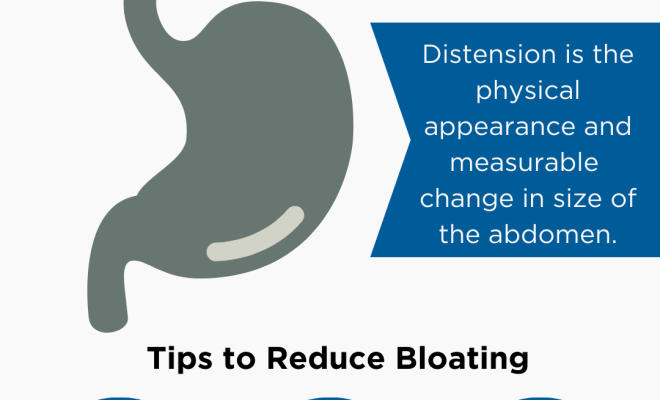Bloating: Understanding What’s Normal and What’s Not

Introduction
Bloating is an uncomfortable sensation that many people experience occasionally. It can be a result of gas or fluid buildup in the stomach, leading to a feeling of fullness and discomfort. It is crucial to distinguish between normal bloating and abnormal bloating, which may indicate an underlying health issue. In this article, we will explore the causes of bloating, how to determine if it’s normal or not, and ways to prevent and alleviate bloating.
Causes of Bloating
There are several reasons why one might experience bloating:
1. Indigestion: Overeating or consuming high-fat foods might slow down digestion, leading to gas buildup and bloating.
2. Swallowing air: Habits such as chewing gum, drinking carbonated beverages, or eating too fast can cause one to swallow air, contributing to bloating.
3. Food intolerance: Some individuals have difficulty digesting specific components in foods like lactose (found in dairy products) or gluten (found in wheat).
4. Menstruation: Hormonal changes during menstruation can lead to fluid retention and bloating among some women.
5. Constipation: As stool accumulates in the colon, gas buildup may lead to a bloated feeling.
6. Gastrointestinal disorders: Conditions such as IBS (Irritable Bowel Syndrome), SIBO (Small Intestinal Bacterial Overgrowth), or inflammatory bowel diseases may cause chronic bloating.
Normal vs. Abnormal Bloating
Normal bloating typically occurs after eating certain foods, consuming large meals or carbonated beverages, and usually subsides after passing gas or having a bowel movement. It may cause mild discomfort but should not significantly affect one’s daily activities.
Abnormal bloating may be more persistent and severe, interfering with everyday tasks due to pain or discomfort. It may also be accompanied by other symptoms like diarrhea, constipation, nausea, or weight loss. This type of bloating may indicate an underlying health issue and should be discussed with a healthcare professional.
Prevention and Relief of Bloating
Here are some ways to prevent and alleviate bloating:
1. Eat smaller meals: Consuming smaller, more frequent meals reduces the amount of food in the stomach and makes digestion easier.
2. Chew slowly: Eating slowly allows for proper digestion and prevents excessive air swallowing.
3. Limit gas-producing foods: Beans, cabbage, onions, and carbonated beverages are known to
cause gas and bloating in some people. Reducing these foods can help minimize bloating.
4. Monitor food intolerances: Being aware of specific food sensitivities and avoiding these foods is essential in preventing bloating.
5. Stay Active: Physical activity helps reduce gas buildup by encouraging bowel movements.
6. Hydration: Drinking plenty of water promotes regular bowel movements and may alleviate constipation-induced bloating.
7. Probiotics: Incorporating probiotic-rich foods or supplements can improve gut health by promoting a balance of beneficial bacteria, reducing gas production.
Conclusion
Understanding the causes of bloating is essential for determining whether it’s normal or indicative of an underlying health issue. Knowing how to prevent and manage bloating can significantly improve one’s overall comfort and wellbeing. If severe or persistent bloating affects daily life, it is vital to seek advice from a healthcare professional to identify any potential health concerns accurately.






